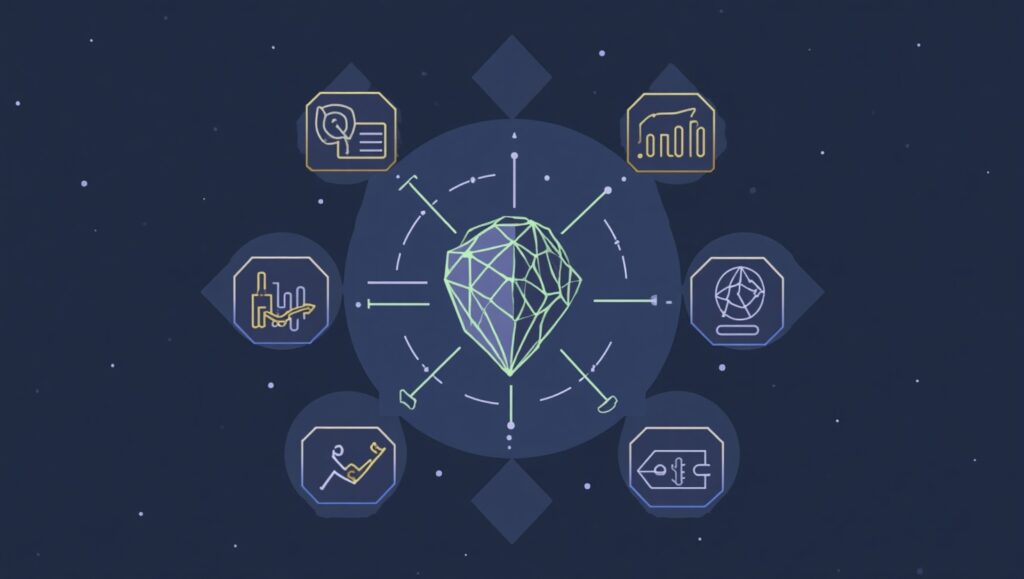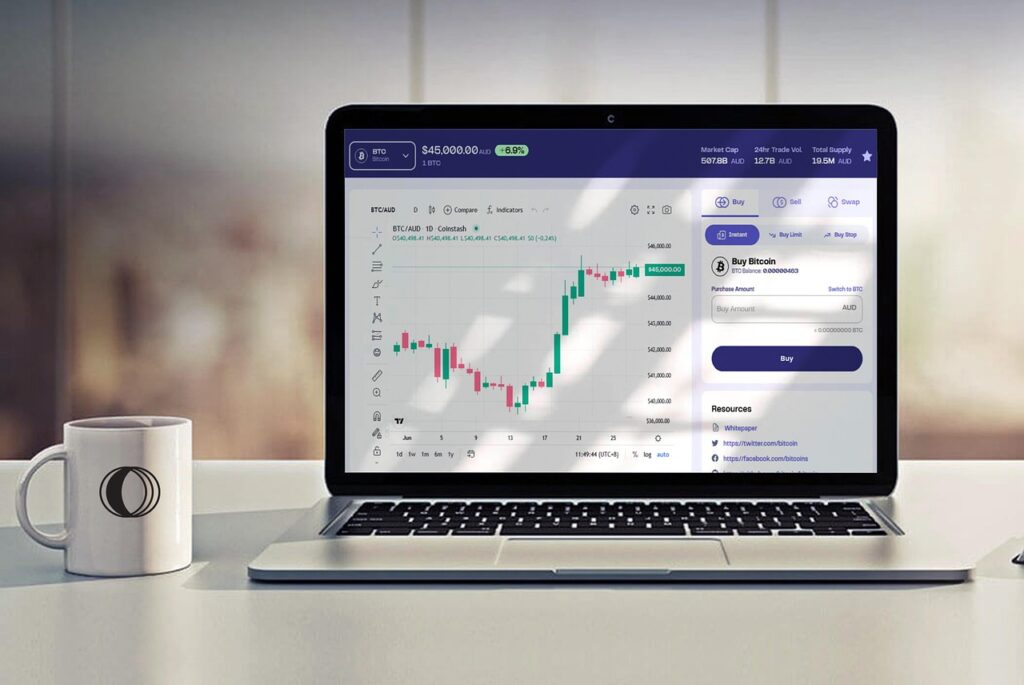Top 5 Blockchain

Are you exploring blockchain voting solutions for your DAO, DeFi project, or community? You’re in the right place.
In this post, we’ll take you through an in-depth, step-by-step comparison of the Top 5 Blockchain Voting Platforms, breaking down how each one works, what makes it unique, and most importantly, how it fits into your specific governance goals. If you’ve been searching for a practical guide that not only explains but also helps you decide, this is it. Blockchain
Why Blockchain Voting Is a Big Deal
Before we get into the platforms themselves, let’s quickly cover why blockchain voting is becoming the go-to method for decentralized decision-making.
Traditional Voting: The Old Way
- Centralized and opaque
- Prone to errors and manipulation
- Costly and inefficient
Blockchain Voting: The New Era
- Decentralized: No single point of control
- Transparent: All votes are verifiable
- Secure: Protected by cryptographic methods
- Efficient: Global participation, minimal friction
Whether you’re running a DAO treasury, coordinating development decisions, or organizing a community vote, blockchain gives you a fair, tamper-proof foundation.
What to Look for in a Blockchain Voting Platform
Choosing the right blockchain voting platform isn’t just about tech specs—it’s about finding the right fit for your values, community structure, and governance style. Here’s a step-by-step breakdown of the key things to keep in mind before you commit to a platform:
1. On-Chain vs Off-Chain Voting
This is one of the biggest decisions you’ll make.
- On-chain voting means that every proposal and vote is recorded directly on the blockchain. This offers strong transparency and makes execution enforceable. However, it can be costly due to gas fees, especially on Ethereum mainnet.
- Off-chain voting, on the other hand, allows you to run votes without paying gas. Results are stored on systems like IPFS and are often verified by wallet signatures. It’s fast and efficient—but you’ll need a separate method to enforce results.
Tip: Many DAOs use off-chain voting (like Snapshot) for early-stage proposals and save on-chain tools (like Aragon or Tally) for final execution.
2. Token Compatibility
Your community may be using regular tokens (ERC-20), NFTs (ERC-721), or even POAPs (proof-of-attendance tokens). Make sure the platform you choose supports your token type.
- ERC-20: Most common for DAOs
- ERC-721: Useful for NFT-based voting or guilds
- POAPs: Great for event-based or participation-based voting
3. Voting Mechanisms
Not all voting is created equal. Depending on your goals, you may want:
- 1-token-1-vote: Straightforward and common
- Quadratic voting: Prevents whales from dominating
- Ranked-choice voting: Ideal for elections or multiple-option polls
- Anonymous voting: Important for sensitive decisions
- Sybil resistance: Prevents duplicate or bot votes
Note: Some platforms let you mix and match these through custom strategies.
4. Ease of Use and Setup
Some platforms are plug-and-play, while others require deeper integration or smart contract work.
- Beginner-friendly: Snapshot, Sybil
- Technical integration needed: Aragon, Vocdoni
- Advanced but streamlined: Tally
Ask yourself: Do you have technical contributors who can help set things up, or do you need something that works out of the box?
5. Integration and Ecosystem Fit
Is the platform actively maintained? Is it trusted by other DAOs in your niche? Platforms with active communities and integrations with tools like Gnosis Safe, ENS, or Discord make life a lot easier.
Once you’ve got a good sense of your needs across these categories, you’ll be in a perfect position to evaluate the top contenders. And lucky for you we’ve done just that in the next section.
Let’s dive in.
1. Snapshot — The Gasless Voting King
Overview:
Snapshot is by far the most popular off-chain voting tool used by DAOs and token communities. It allows proposals and votes to be submitted without any gas fees, thanks to wallet-signature-based voting stored on IPFS. It’s lightweight, flexible, and widely adopted across the Web3 space.
How It Works:
- Proposals are created through the Snapshot UI
- Token holders vote by signing a message with their wallet
- Votes are calculated based on token balances
- Results are viewable and transparent, but not enforced on-chain
Features:
- No gas fees
- Multiple voting strategies (1-token-1-vote, quadratic, weighted)
- Supports ERC-20, NFTs, POAPs
- Integrated with tools like Gnosis Safe, ENS, and more
Use Case:
- Ideal for DAOs, NFT communities, DeFi protocols, and any group that wants fast, cost-free governance.
Pros:
- Extremely user-friendly
- Broadly adopted and battle-tested
- Customizable voting logic via strategies
Cons:
- Results must be manually enforced or trusted
- Off-chain means it’s not suitable for legally binding governance
2. Aragon Voice — Legal-Grade On-Chain Governance
Overview:
is a powerful, privacy-first voting platform built on the Gnosis Chain. It’s designed to handle large-scale elections where voter anonymity and end-to-end verifiability are critical. Vocdoni uses advanced cryptographic methods to ensure that votes remain private while still being fully auditable making it ideal for civic elections, NGOs, unions, and any organization that values privacy and transparency in their voting process.
How It Works:
- Proposals are published on-chain
- Votes are cast and recorded as transactions
- Outcomes are automatically executed if passed
- Disputes can be resolved via Aragon Court
Features:
- On-chain finality
- Gasless voting via relayers (optional)
- Custom voting parameters
- Legal framework with Aragon Agreements
Use Case:
- Perfect for DAOs and projects needing binding decisions or real-time, on-chain enforcement
Pros:
- True decentralization and autonomy
- Optional legal framework for enforceability
- Highly customizable with smart contracts
Cons:
- Slightly higher learning curve
- Gas fees can be expensive without Layer 2 options (though Polygon support helps)
3. Vocdoni — Scalable, Anonymous, and Civic-Ready
Overview:
is a powerful, privacy-first voting platform built on the Gnosis Chain. It’s designed to handle large-scale elections where voter anonymity and end-to-end verifiability are critical. Vocdoni uses advanced cryptographic methods to ensure that votes remain private while still being fully auditable making it ideal for civic elections, NGOs, unions, and any organization that values privacy and transparency in their voting process.
How It Works:
- Voters receive anonymous credentials
- Votes are encrypted and submitted to the network
- Zero-knowledge proofs are used to verify the vote
- Audit logs ensure total transparency without revealing identities
Features:
- End-to-end verifiable and anonymous
- Scalable for millions of voters
- Integrates with DAOs and civic tech
- Includes a mobile-ready voting client
Use Case:
- Ideal for civic elections, NGOs, unions, and any group where privacy is crucial
Pros:
- Best-in-class privacy and auditability
- Supports complex voting models (e.g., ranked-choice)
- Used in real-world elections (Catalonia, NGOs)
Cons:
- Setup requires some technical understanding
- Less DAO-focused out of the box

4. Tally — DAO Governance Dashboard for Power Users
Overview:
Tally is a powerful on-chain governance interface designed specifically for DAOs like Compound, Uniswap, and many others. It brings together everything you need in one sleek dashboard from clear data visualization and easy vote delegation to smooth proposal execution. Whether you’re tracking proposals or managing complex governance processes, Tally makes it simple and transparent for power users and communities alike.
How It Works:
- Smart contracts define proposal logic and voting periods
- Users delegate votes or vote directly via UI
- Tally integrates with Etherscan and smart contract data
Features:
- Fully on-chain governance interface
- Built-in delegation support
- Live proposal status and analytics
- Used by top DeFi protocols
Use Case:
- Great for DeFi protocols, developer DAOs, and projects managing real funds
Pros:
- Tight protocol integration
- Seamless experience for proposal tracking and voting
- Trustless and transparent
Cons:
- Limited to Ethereum mainnet (as of now)
- Voters must pay gas fees
5. Sybil — Identity Layer for Fair Voting
Overview:
Sybil isn’t a full voting platform but rather a Sybil resistance tool designed to strengthen the integrity of identity-based voting systems. It verifies wallet holders by linking them to trusted accounts like GitHub, Twitter, ENS, or POAPs, helping ensure that one person equals one vote. By preventing duplicate or fake identities, Sybil adds an important layer of fairness and security to your governance process.
How It Works:
- Connects to a user’s ENS, GitHub, Twitter, or POAPs
- Verifies unique identity to prevent duplicate voting
- Often used with platforms like Gitcoin or Snapshot
Features:
- Identity verification tools
- Anti-bot and anti-Sybil attack protection
- Integrates with existing governance platforms
Use Case:
- Works best as a complementary tool to add integrity to other voting platforms
Pros:
- Easy to use with existing wallets
- Supports quadratic and weighted voting models
- Free and open-source
Cons:
- Not a standalone voting platform
- Limited to identity-layer support
At-a-Glance Comparison Table
| Platform | On-Chain | Gas Fees | Anonymity | Legal Enforceability | Best Use Case |
|---|---|---|---|---|---|
| Snapshot | No | None | No | No | DAOs and NFT communities |
| Aragon Voice | Yes | Low-Med | No | Yes | Legal DAO governance |
| Vocdoni | Yes | Low | Yes | No | Civic elections and NGOs |
| Tally | Yes | High | No | Yes (via contracts) | DeFi protocols |
| Sybil | Partial | None | No | No | Sybil-resistant identity layer |
Which One Should You Choose?
Let’s make it easy.
| Your Goal | Best Platform |
| Fast, gasless voting with token weight | Snapshot |
| Enforceable governance with smart contract backing | Aragon Voice |
| Private, anonymous elections for civic-scale voting | Vocdoni |
| On-chain protocol governance with full transparency | Tally |
| Preventing bot attacks or duplicate votes | Sybil (addon) |
Real-World Example Use Cases
Gitcoin leverages Sybil tools to ensure fair quadratic funding rounds.
Aave DAO uses Snapshot for community proposals and Tally for on-chain voting.
Catalan government tested Vocdoni for citizen voting.
Developer DAOs like Moloch use Aragon Voice for executing treasury transactions.
Conclusion:
Choosing the right blockchain voting platform is a crucial step in building a successful, transparent, and fair governance system for your DAO, DeFi project, or community. As we’ve seen, each platform offers unique strengths—whether it’s Snapshot’s gasless ease, Aragon Voice’s enforceable on-chain decisions, Vocdoni’s privacy-first approach, Tally’s power-user analytics, or Sybil’s identity verification layer.
The best choice depends on your specific needs:
- Want fast, cost-free voting? Snapshot is your go-to.
- Need legally binding on-chain governance? Aragon Voice has you covered.
- Prioritize voter anonymity and auditability? Vocdoni stands out.
- Managing complex DeFi protocols with on-chain transparency? Tally fits well.
- Looking to prevent fake votes or bots? Add Sybil to your toolkit.
Remember, it’s perfectly normal—and often smart—to combine platforms to get the best of multiple worlds. Take your time, consider your community’s priorities, and don’t hesitate to reach out to platform experts or governance consultants.
Your governance journey starts now. With the right tools, you can build a truly decentralized, democratic system that empowers everyone involved.
Ready to launch your first vote? Let’s build the future of decentralized decision-making together. see



